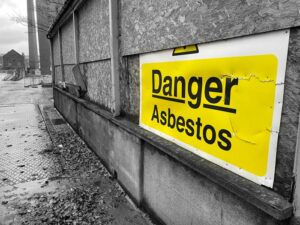More than 150 non-governmental organisations have called for an immediate halt to the construction of new waste incinerators across the European Union, warning that expanding capacity threatens both climate targets and public health.
In a joint letter addressed to European Commission President Ursula von der Leyen, EU Commissioners and national ministers, the coalition – led by Zero Waste Europe – urges an EU-wide moratorium on approving new incineration facilities, alongside a strategy to gradually phase down existing plants.

The group also calls for greater investment in circular economy measures, such as reuse systems, composting and advanced recycling technologies.
The NGOs, representing 156 organisations across Europe, argue that the EU already has significant overcapacity in incineration, with facilities able to process more than 60 million tonnes of municipal waste annually. Expanding this infrastructure, they warn, risks locking member states into a ‘linear’ and high-emission waste model, undermining both the EU Green Deal and ambitions for climate neutrality.
Research cited in the letter highlights that incineration often emits more carbon than fossil fuel power sources, due to the large proportion of plastics in residual waste. Communities living near incinerators have also raised long-standing concerns about health risks from toxic pollutants such as dioxins, PFAS, and heavy metals, which are linked to cancer and developmental harm.
Janek Vahk, Zero Pollution Policy Manager at Zero Waste Europe, said: ,A moratorium is a necessary first step to protect public health, cut emissions, and enable a just transition to a zero waste, circular economy. Given the average life of incinerators, around 5% of capacity may already be decommissioned or retired each year, which is a realistic pathway to gradually reduce Europe’s reliance on this polluting technology.’
The letter was published on 30th September to coincide with the Day of Action Against Incineration, part of the “Better than Burning” campaign, which also launched a manifesto and shared community testimonies on the impacts of waste incineration across Europe.
The debate also has implications for the UK, which trades waste-derived fuel with EU countries. Two dozen UK organisations signed the letter, including the United Kingdom Without Incineration Network (UKWIN).
Shlomo Dowen, UKWIN’s National Coordinator, said: ‘The UK can be proud of Wales and Scotland, who have led efforts to support the circular economy by banning any new waste incineration capacity. Such a shift away from incineration will help the transition to a more circular economy where resources are valued and not destroyed.’
The letter is printed in full below.
Subject: Call for a moratorium on new waste incineration in the EU
Dear President von der Leyen, Commissioners, and National Ministers,
We, the undersigned, call on the European Commission and EU Member States to immediately halt the approval and construction of new waste incineration facilities across the European Union.
The EU already faces an overcapacity crisis of municipal waste incineration, estimated at 60 million tonnes.1 After Europe meets its existing recycling and waste reduction targets, the current infrastructure will, without any doubt, meet all future needs. Expanding incineration capacity will lock Europe into a burning materials system that directly undermines waste prevention, reuse, and recycling — the top priorities of the EU waste hierarchy and a circular economy.
Waste incineration is increasingly recognised as a growing climate liability. As documented in recent analysis,2 the carbon intensity of energy generated by incineration is higher than that of many conventional energy sources, especially when factoring in the high fossil content of residual waste — largely from plastics. The associated greenhouse gas emissions from incineration, even in energy recovery facilities, directly confl ict with the EU’s commitments to climate neutrality. Building new incineration facilities now would entrench high-emission infrastructure for decades, making it harder for Member States to meet their climate targets under the EU Green Deal and the Clean Industrial Deal.
Despite improvements in emission controls, growing evidence links waste incineration to serious contamination and potential health harms.3 Contrary to claims that incineration eliminates the need for landfi lls, up to 16 million tonnes of incineration residues (including hazardous waste) are landfi lled annually.4 Communities near incinerators across Europe are exposed to very persistent and toxic pollutants such as dioxins, heavy metals, and PFAS. These have been found in soil, food, and even human bodies, and are associated with cancer, immune dysfunction, and developmental disorders.5 Even legally compliant facilities contribute to repeated, long-term, and cumulative toxic exposures that threaten public health, especially among vulnerable populations.
A moratorium on new waste incineration infrastructure would prevent very high construction costs, unnecessarily high emissions, and harmful pollution. It would also support a just transition toward circular economy infrastructure — such as reuse systems, composting, and advanced recycling — delivering far greater climate, health, and economic benefi ts. It would also help achieve the goal of the Clean Industrial Deal: to make the EU the world leader in the circular economy.
We call for:
● An immediate EU-wide moratorium on new waste incineration facilities (R1 and D10);
● National and EU strategies to phase down existing capacity; along with
● Investment in circular economy infrastructure that supports a climate-safe, environmentally-friendly, and resilient waste management.
















Leave a Reply